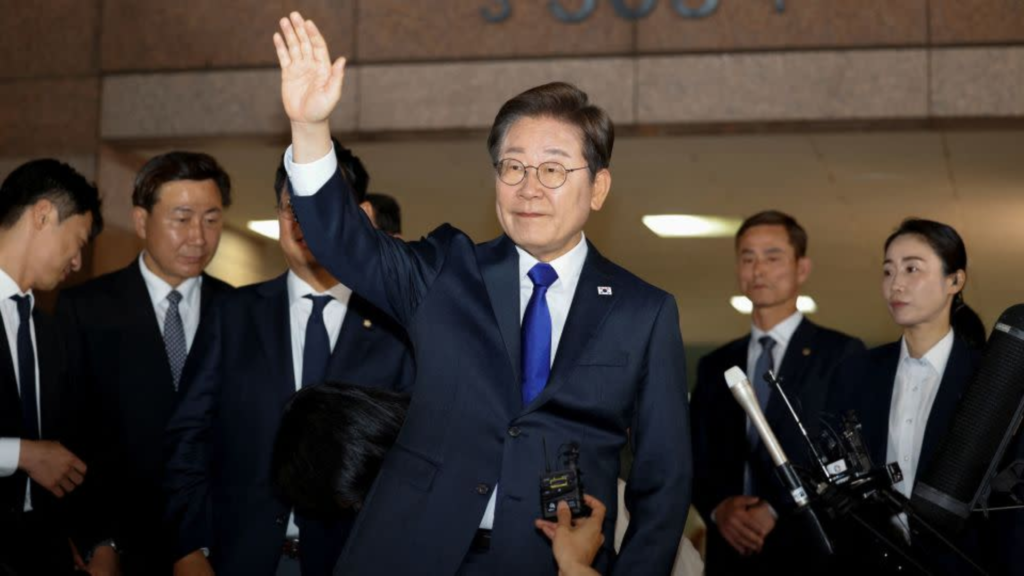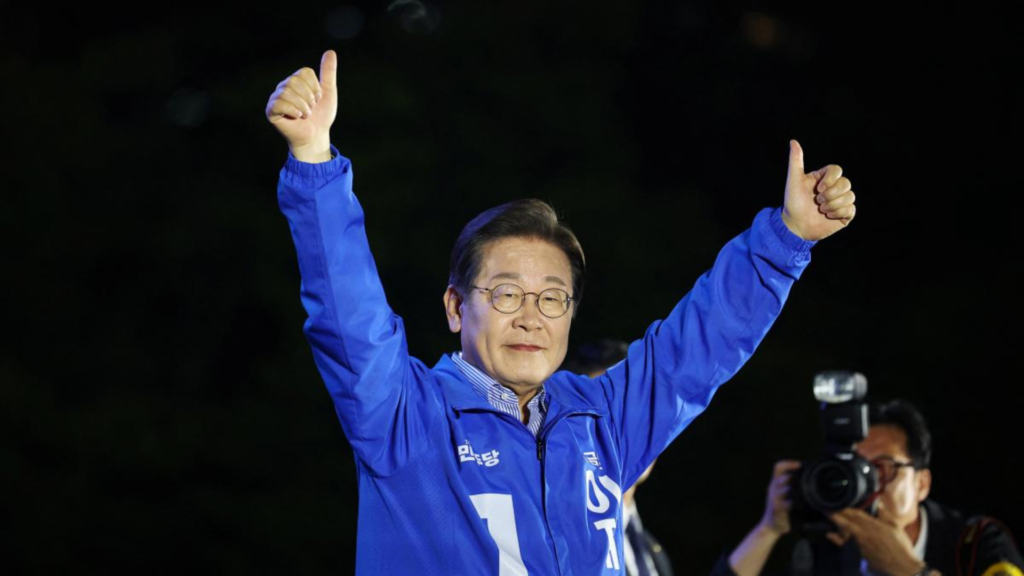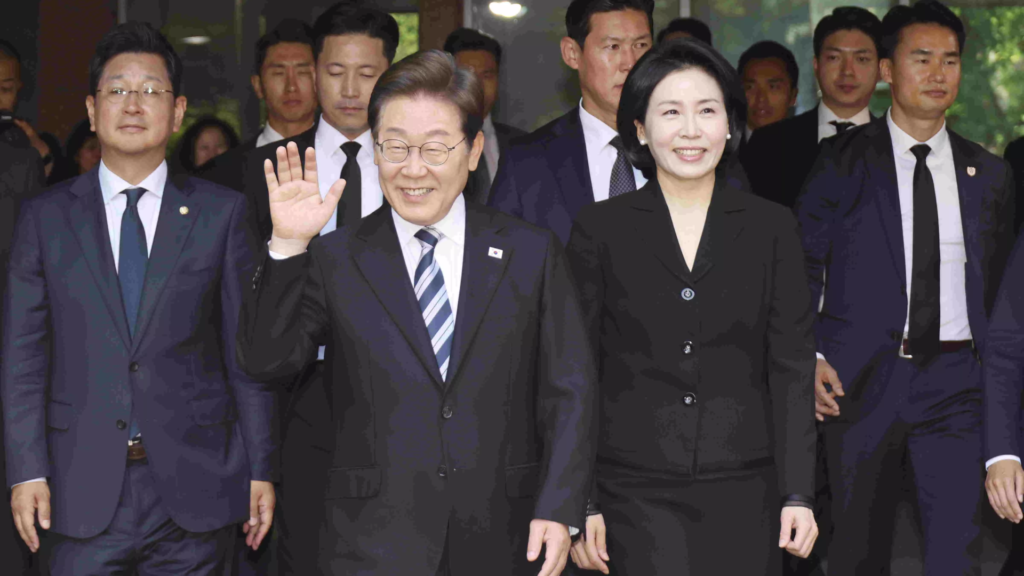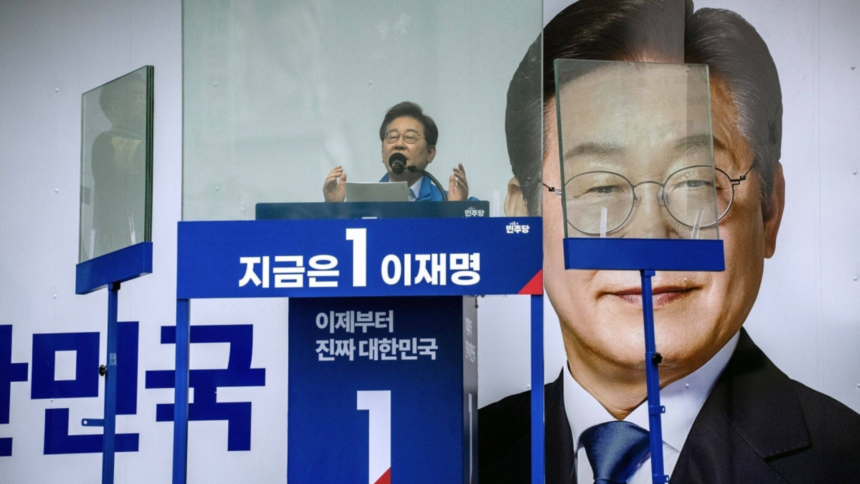A New Chapter Begins: South Korea North Korea Talks Back on the Table
South Korea has entered a new political era as President Lee Jae-myung takes office with a powerful message of peace. In his first foreign policy speech on June 3, 2025, Lee declared, “Peace is always cheaper than war,” and pledged to reignite South Korea North Korea talks while reducing tensions on the Korean Peninsula.
This marks a clear shift from previous hardline approaches and revives hopes for diplomatic progress after years of deadlock between Seoul and Pyongyang.

Lee Jae-myung’s Foreign Policy Strategy: Peace Through Dialogue
President Lee’s foreign policy vision is rooted in constructive dialogue, economic cooperation, and humanitarian exchange with North Korea. Throughout his campaign, he emphasized that lasting peace can only be achieved through mutual understanding and consistent engagement.
His administration plans to:
- Reopen inter-Korean communication hotlines
- Resume joint economic zones, such as the Kaesong Industrial Complex
- Offer humanitarian aid to North Korea without preconditions
- Coordinate with allies to restart denuclearization talks
“My administration will do everything in its power to bring both Koreas back to the negotiation table. The time for peace has come,” said Lee.
Historical Context: A Fractured Past
The South Korea North Korea relationship has been shaped by decades of conflict, brief cooperation, and renewed tensions. The Sunshine Policy of the early 2000s offered a glimpse of reconciliation, but recent years have seen setbacks due to missile tests, diplomatic breakdowns, and leadership changes.
Since the failure of the 2019 Hanoi Summit between the U.S. and North Korea, talks between Seoul and Pyongyang have stalled. President Lee’s administration aims to turn the tide.
North Korea’s Response: Silent but Watchful
As of early June 2025, North Korea has not officially responded to President Lee’s peace proposal. However, analysts believe that Pyongyang is closely monitoring the new government’s actions. Experts suggest that economic aid or sanctions relief could encourage Kim Jong-un’s regime to re-engage.

Nonetheless, recent missile tests and military drills by North Korea continue to raise concerns about regional security.
International Support for South Korea North Korea Talks
President Lee’s peace initiative has drawn positive but cautious support from the international community:
- United States: Welcomed the move and reaffirmed support for denuclearization efforts
- China: Encouraged dialogue and regional stability
- Japan: Emphasized the need to address missile threats while backing peace talks
- United Nations: Praised the return to diplomacy and urged both sides to avoid provocation
Domestic Reactions: Hope with Caution
Public sentiment in South Korea shows a mix of hope, caution, and skepticism. A recent Gallup Korea poll revealed:
- 56% support resuming South Korea North Korea talks
- 31% express concern about trusting Pyongyang
- 13% remain undecided
Many South Koreans, particularly the youth, are eager for a peaceful and stable future, but remain wary due to North Korea’s track record of broken agreements.
South Korea North Korea Talks for Long-Term Peace
President Lee’s administration has made it clear that South Korea North Korea talks are more than a campaign slogan — they are a national priority. Through diplomacy and international cooperation, Seoul aims to:

- Prevent military escalation
- Encourage mutual economic development
- Establish a foundation for lasting peace on the Korean Peninsula
The quote “peace is cheaper than war” reflects a strategic recalibration toward diplomacy, trust-building, and sustainable security.
A Hopeful Path Forward for the Korean Peninsula
In conclusion, President Lee Jae-myung’s renewed commitment to South Korea North Korea talks signals a fresh opportunity for peace. Despite ongoing challenges — including mutual distrust and military threats — the path to diplomacy is once again visible.
With global support and public optimism, this initiative could redefine inter-Korean relations, offering a brighter, more peaceful future for the region.





There is definately a lot to find out about this subject. I like all the points you made